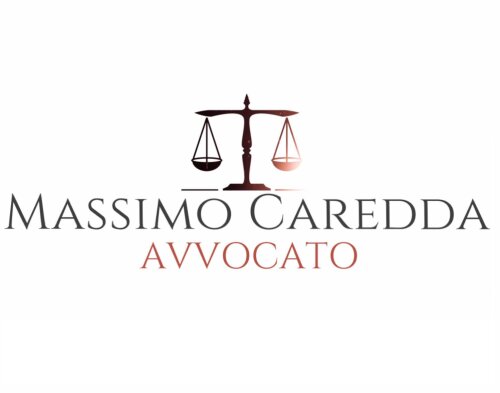Best Native People Lawyers in Cagliari
Share your needs with us, get contacted by law firms.
Free. Takes 2 min.
List of the best lawyers in Cagliari, Italy
About Native People Law in Cagliari, Italy
In the context of Cagliari, Italy, the term "Native People" typically refers to the indigenous Sardinian population with a unique historical, linguistic, and cultural identity. Italy does not have the same legal framework for indigenous peoples as some other countries, but cultural, linguistic, and historical rights of Sardinians are recognized both at national and regional levels. Laws may relate to the protection of the Sardinian language, preservation of local customs, land rights, and cultural heritage. Additionally, legal considerations may also relate to foreign indigenous communities who reside or seek recognition in Cagliari.
Why You May Need a Lawyer
People seeking legal advice in Native People matters in Cagliari might do so for a number of reasons. Common scenarios include:
- Advocating for protection of cultural sites and heritage.
- Seeking recognition or protection of traditional land and property rights.
- Navigating legal documentation for teaching or promoting the Sardinian language in schools or public administration.
- Addressing discrimination or violation of cultural rights.
- Pursuing funding or governmental recognition for cultural associations or projects.
- Representing the interests of minority or indigenous groups in local government decisions.
- Understanding legal rights if you are a member of a non-Italian indigenous group living in Cagliari.
Local Laws Overview
Key aspects of the law relevant to Native People in Cagliari include:
- The Italian Constitution: Provides for the protection of linguistic and cultural minorities.
- Regional Statute of Sardinia: Recognizes the autonomy of Sardinia and provides specific protections for the Sardinian language, traditions, and cultural heritage.
- Laws for the Protection of the Sardinian Language: Regional legislation aims to promote the use of the Sardinian language in schools and public life.
- Cultural Heritage Laws: Both national and regional laws provide strict protections for archaeological sites, historical landmarks, and traditional practices.
- Anti-Discrimination Laws: General Italian and European Union human rights standards apply, protecting against ethnic or cultural discrimination.
While Sardinians are the main subjects of "native" legal provisions, some non-Italian indigenous groups residing in Cagliari may seek recognition or protection under international instruments such as the UN Declaration on the Rights of Indigenous Peoples.
Frequently Asked Questions
Who are considered "Native People" in Cagliari?
Typically, this refers to ethnic Sardinians who are indigenous to the island, with distinct linguistic and cultural characteristics. In some contexts, it can also refer to foreign indigenous peoples living in the city.
Is the Sardinian language recognized by law?
Yes. Both the Italian State and the Autonomous Region of Sardinia have legal frameworks promoting and protecting the Sardinian language in cultural, educational, and public contexts.
Do Native Sardinians have special land rights?
Unlike some countries, Italy does not grant collective "indigenous land rights." However, there are legal protections for traditional land uses, especially related to agriculture, pastoralism, and historical preservation.
Can I use Sardinian in official documents or proceedings?
Regional laws support the use of Sardinian in certain public communications, education, and administrative matters, but Italian remains the main official language for most legal and governmental documents.
Are there protections against discrimination for Native People?
Yes. Italian and EU anti-discrimination laws apply, offering legal recourse for cases of ethnic, linguistic, or cultural discrimination.
How can cultural sites important to Native People be protected?
There are strong Italian and Sardinian laws protecting archaeological sites, places of worship, and areas of historical significance, with severe penalties for unauthorized alteration or destruction.
Can Native People establish cultural associations?
Absolutely. Legal frameworks exist for the establishment of non-profit organizations focused on cultural and linguistic preservation, and the region may offer specific funding opportunities.
What if I am from a non-Italian indigenous group living in Cagliari?
While Italian law does not specifically address non-Italian indigenous rights, human rights, anti-discrimination protections, and some international treaties provide a measure of protection.
Are there legal protections for traditional practices and festivals?
Yes. Many traditional festivals and practices are recognized and protected as part of Sardinian cultural heritage, and there are procedures to seek recognition for such events.
How can I find a lawyer knowledgeable in Native People law in Cagliari?
You can search local bar associations, citizen assistance offices, or cultural associations. Some NGOs and university legal clinics may offer specialized advice or referrals.
Additional Resources
The following organizations and institutions can provide information, support, or referrals for Native People legal matters in Cagliari:
- Regione Autonoma della Sardegna - Assessorato alla Cultura: Handles cultural and linguistic heritage matters.
- Consiglio Regionale della Sardegna: The regional parliament, often relevant for legislation on native rights.
- Sovrintendenza Archeologica della Sardegna: Authority responsible for cultural heritage and archaeological sites.
- Ordine degli Avvocati di Cagliari: Local bar association for lawyer referrals.
- Università degli Studi di Cagliari - Dipartimento di Giurisprudenza: Offers resources, publications, and sometimes legal clinics.
- Local Cultural Associations: Such as "Sardigna Libera" and others that support cultural and linguistic rights.
Next Steps
If you require legal assistance in the field of Native People in Cagliari, consider the following actions:
- Clearly identify your specific legal issue (e.g., language rights, land use, cultural protection).
- Gather any relevant documentation, such as identification, property deeds, or evidence of discrimination.
- Contact the appropriate resource listed above for advice or referral.
- Consider scheduling a consultation with a lawyer who specializes in cultural or linguistic rights.
- If cost is a concern, seek help from university legal clinics or NGOs that may offer low-cost or free initial advice.
- In case of violation of rights, act quickly as certain legal challenges may be subject to deadlines.
Understanding your rights and the legal landscape is essential. Do not hesitate to seek professional advice tailored to your unique circumstances regarding Native People in Cagliari, Italy.
Lawzana helps you find the best lawyers and law firms in Cagliari through a curated and pre-screened list of qualified legal professionals. Our platform offers rankings and detailed profiles of attorneys and law firms, allowing you to compare based on practice areas, including Native People, experience, and client feedback.
Each profile includes a description of the firm's areas of practice, client reviews, team members and partners, year of establishment, spoken languages, office locations, contact information, social media presence, and any published articles or resources. Most firms on our platform speak English and are experienced in both local and international legal matters.
Get a quote from top-rated law firms in Cagliari, Italy — quickly, securely, and without unnecessary hassle.
Disclaimer:
The information provided on this page is for general informational purposes only and does not constitute legal advice. While we strive to ensure the accuracy and relevance of the content, legal information may change over time, and interpretations of the law can vary. You should always consult with a qualified legal professional for advice specific to your situation.
We disclaim all liability for actions taken or not taken based on the content of this page. If you believe any information is incorrect or outdated, please contact us, and we will review and update it where appropriate.









